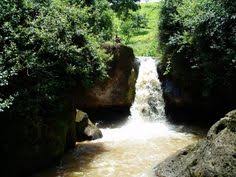The Climate and Sustainable Development Network (CSDevNet), a civil society group, says the ongoing Reducing Emission from Deforestation and Degraded Forests (REDD+) National Capacity Building will reduce carbon emission.
According to a statement by Mr Pius Oko, the Project Officer of CSDevNet on Friday in Abuja, the engagement programme had both experts and the local communities in attendance.
The REDD+ programme is the UN collaborative initiative on Reducing Emissions from Deforestation and Forest Degradation (REDD) in developing countries.
Reducing Emissions from Deforestation and Forest Degradation (REDD) is a market-based mechanism for achieving the effective reduction of carbon emissions from forests.
Mr Atayi Babs, the National Network Coordinator of CSDevNet represented by Mr Stephen Abu said it was the first time civil society was coming together with REDD+ with a view to making individual efforts speak volumes.
“The event, organised under the platform of CSOs and REDD+ is about the engagement of NGOs, CSOs and the community people at the grassroots as we have always wanted independent communication with the grassroots.”
Babs said that the overall objective of the event was to ensure knowledge exchange and provide a platform for REDD+ readiness process.
“CSDevNet is a network with a membership of 300 organisations cutting across the six geo- political zones in Nigeria.
“It brings together community associations, pastoralists, youth and women groups, media organisations, faith-based and civil society organisations working on sustainable development goals to commonly promote and advocate pro-poor, climate-friendly and equity-based responses to climate change and sustainable development.
“It aspires to unify and coordinate isolated civil society efforts on climate change advocacy in Nigeria to ensure that people-centred response mechanisms are accorded desirable attention.
“It also enhances relevance as climate change is increasingly mainstreamed into national and global poverty reduction and sustainable development strategies and actions.’’
Mr Adeshina Dada, the Coordinator of REDD+ Ondo State, while sharing his experience with CSOs said that all CSOs had one peculiarity “which is core quest for community development’’.
Dada said that participating in capacity building makes collaborative partnership between the government and CSOs more positive.
“REDD+ is on ground and I believe that as we are coming up, the government must be in the forefront to drive the change.
“Overall, our interface with CSOs has been very successful as they sometimes lead the way by giving their inputs which are always integrated in the budget.’’
Alhaji Lateef Fabunmi, the Permanent Secretary, Ministry of Natural Resources, Ondo State thanked the organisers for the programme.
“Today’s capacity building training programme is a deliberate and conscious effort to enrich our knowledge about Climate Change processes.
“Ondo State has immensely benefited from the various capacity building and training programmes from the National REDD+ Secretariat and we are grateful for that.’’
Fabunmi said that the meeting would among other things sensitise local communities and CSOs targeting women, and youths on REDD+ processes and climate change.
“We are resolved to strengthen the REDD+ community of practice in Nigeria through learning, and experience sharing.
“We have also taken pragmatic steps in the adoption of the cardinal principle of REDD+ as a mechanism to address climate change and conserve invaluable forests,’’ he added.
Dr Moses Ama, the National Coordinator of REDD+, represented by Mrs Awa Umar said that REDD+ in Nigeria had been addressing the issues of partnership in curbing carbon emission.
“I pray that this event in Ondo State will happen in other States. We are prepared to work with them to ensure that what they are doing in the area of forest conservation is well implemented in the best practice.
“We intend to make the workshop interactive in nature, share experiences in the areas that need to be enhanced, and look into aspects of, and challenges and gaps and be able to implement this project in the best practice.’’


